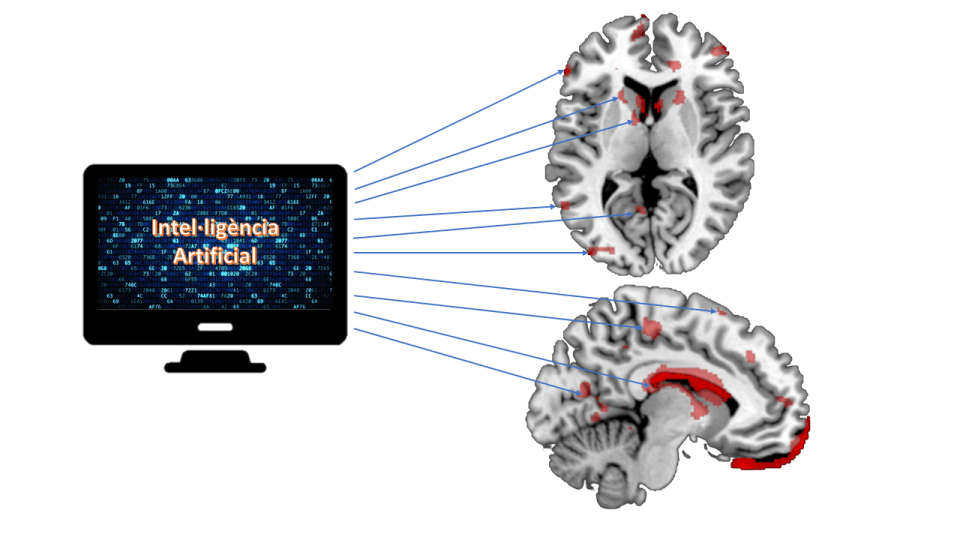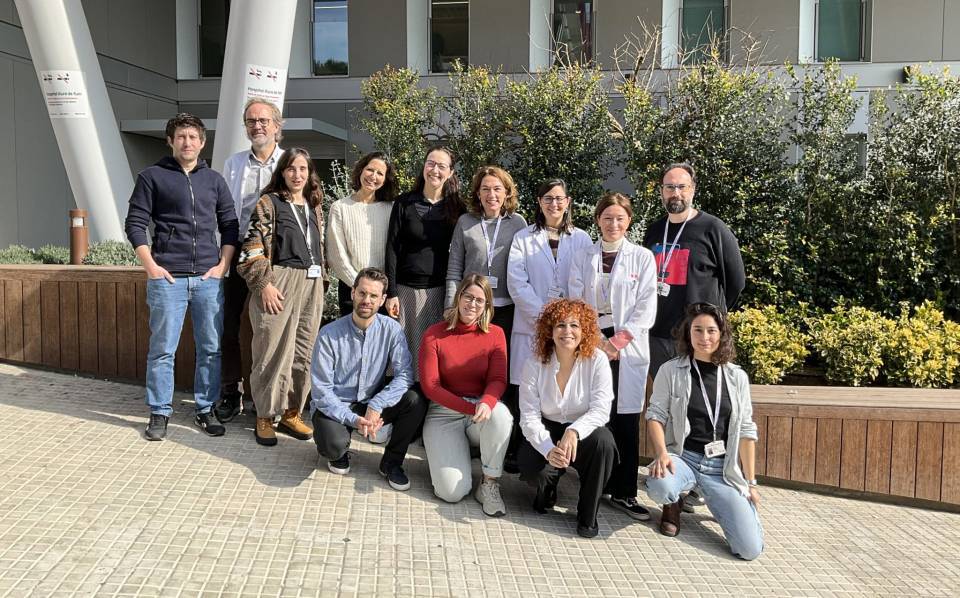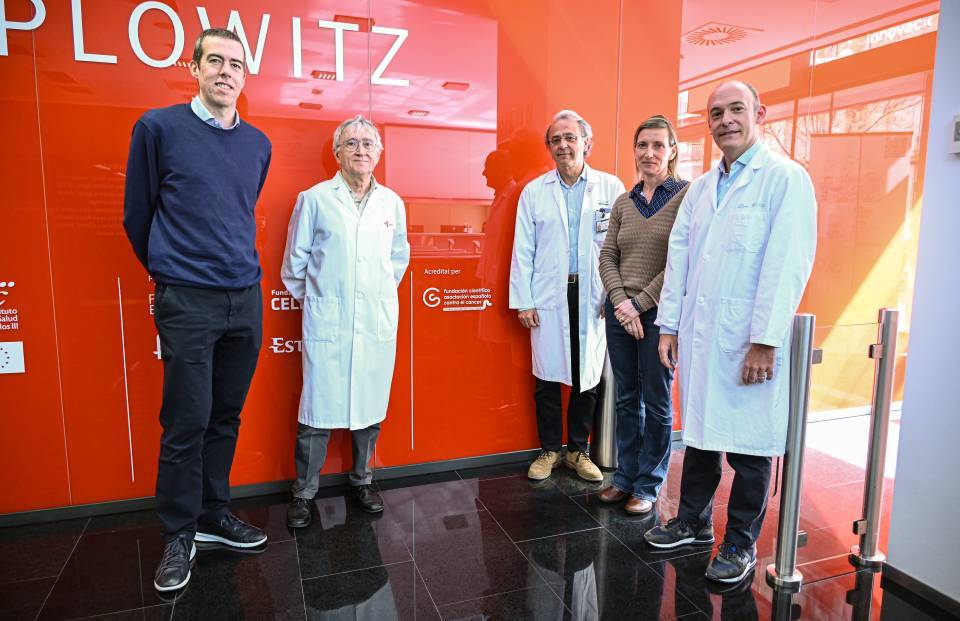This is shown in an article led by researchers from IDIBAPS-Clínic Barcelona, the FIDMAG Foundation and CIBERSAM.
The study, published in the journal Schizophrenia, which belongs to the Nature group, was coordinated by Joaquim Raduà, head of the IDIBAPS Imaging of mood- and anxiety-related disorders research group and CIBERSAM researchers, and Edith Pomarol-Clotet, director of the Sisters Hospitallers Research Foundation (FIDMAG) and CIBERSAM researcher. The first author of the study is Aleix Solanes, research in the IDIBAPS IMARD group.
The discovery of the relationship between magnetic resonance imaging and mental disorders led to research into imaging biomarkers in this field. However, to date no significant findings have been made. New artificial intelligence methods have reopened the possibility of creating tools that can help in clinical decision-making.
“It is important to estimate this risk, because that way we can personalize treatment and increase the frequency of visits in high-risk patients, or avoid unnecessary treatments if the risk is low”, points out Joaquim Raduà. “Until now, you could only know if a patient had a high relapse risk after several episodes and relapses”, he adds.
The study involved 227 patients with a first psychotic episode from seven different hospitals in Spain. They were followed for two years. The researchers designed a tool to assess whether the MRI was capable of detecting patients at high risk of relapse after the first episode.
The results of the study show that the software was able to detect patients at high risk of relapse. In fact, in the empirical validation, the observed relapse risk in patients identified as being at high risk was 4.5 times higher than in low-risk patients.
This tool based on neuroimaging data to assess the risk of relapse after a first psychotic episode is valuable and feasible. “Valuable because it allows the follow-up and treatment of each patient to be adjusted in accordance with the determined risk. Feasible because, since people with a first psychotic episode already undergo a magnetic resonance imaging scan to discard any organic brain pathology, there is no need for further examinations," the researchers conclude.
The software developed for this study has been made freely available to the scientific community to allow groups to develop their own detection models. Moreover, there is also a website for estimating the risk of relapse quickly and helping to replicate the model. However, before this tool can be used in clinical practice, the researchers stress that the results need to be replicated in other studies.
Article reference:
Combining MRI and clinical data to detect high relapse risk after the first episode of psychosis.
Solanes A, Mezquida G, Janssen J, Amoretti S, Lobo A, González-Pinto A, Arango C, Vieta E, Castro-Fornieles J, Bergé D, Albacete A, Giné E, Parellada M, Bernardo M; PEPs group (collaborators), Pomarol-Clotet E, Radua J.
Schizophrenia (Heidelb). 2022 Nov 17;8(1):100. doi: 10.1038/s41537-022-00309-w.




